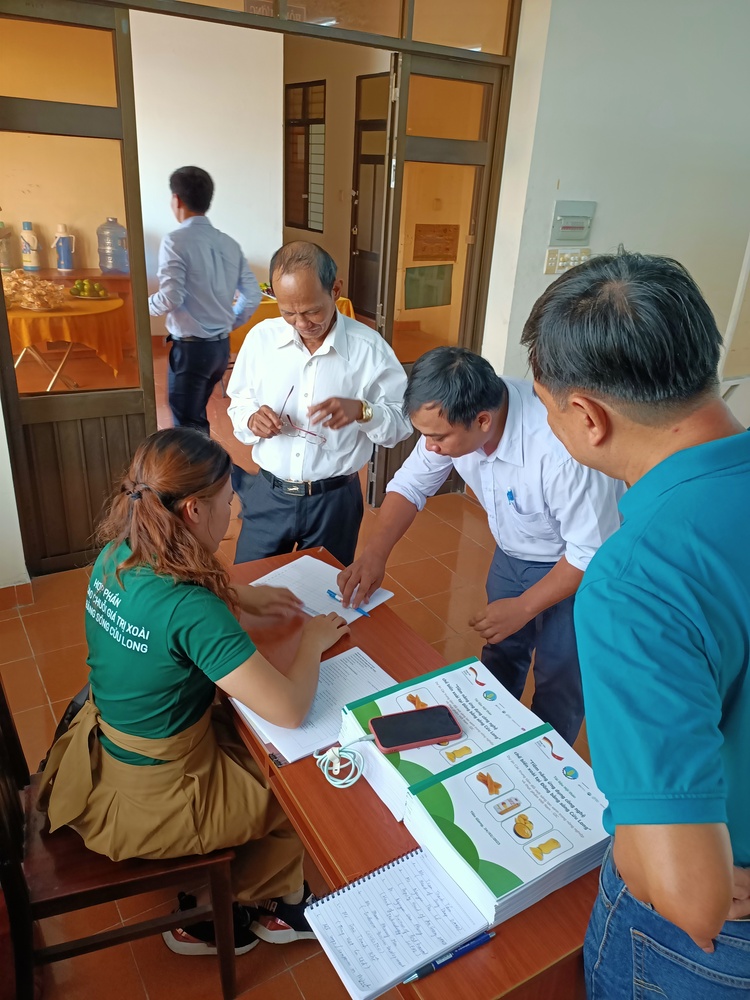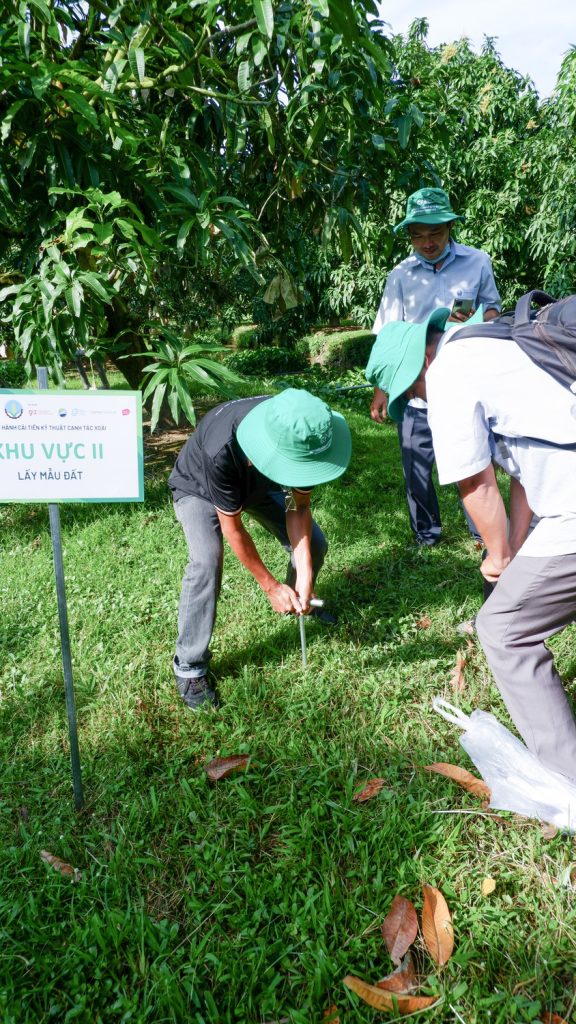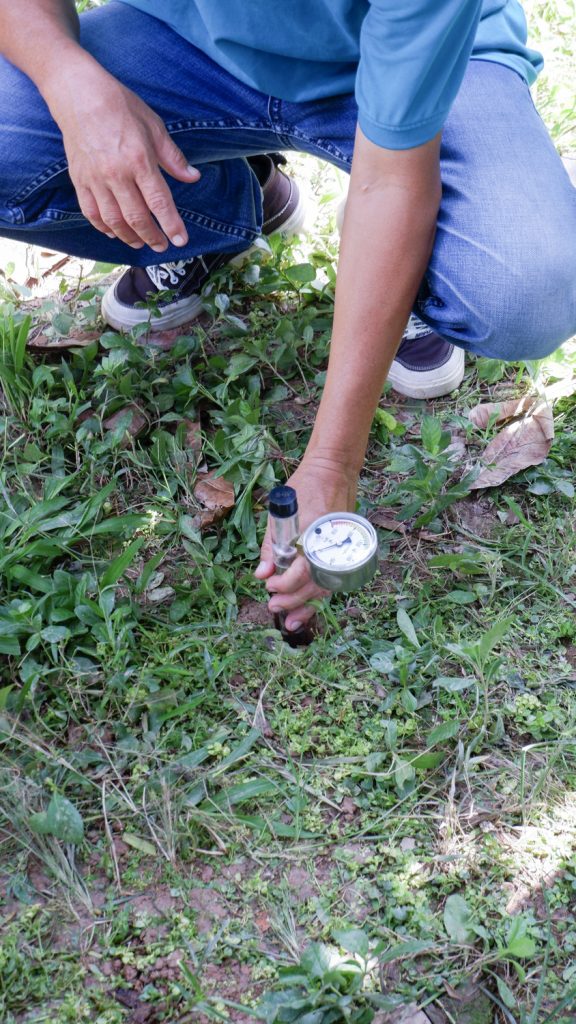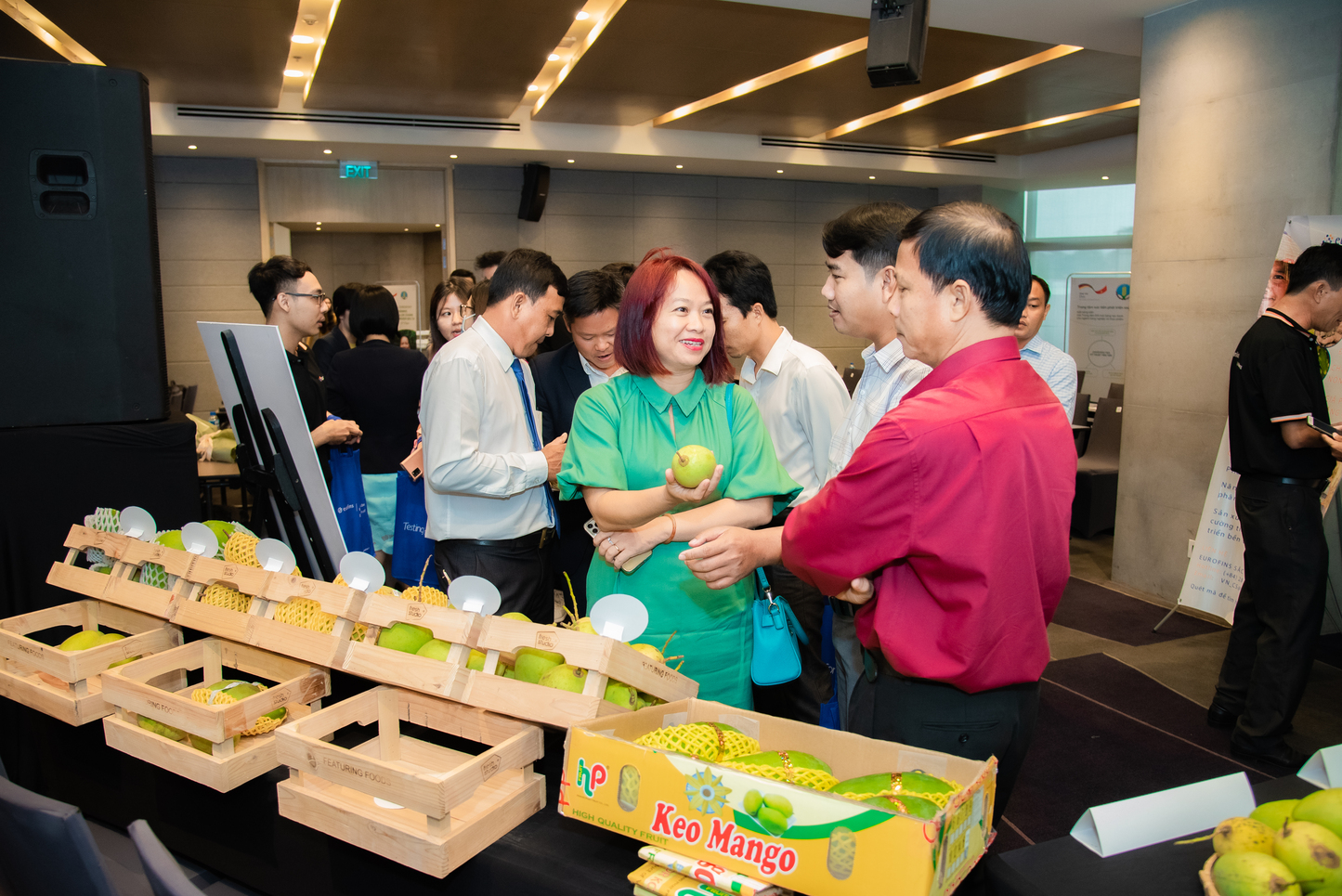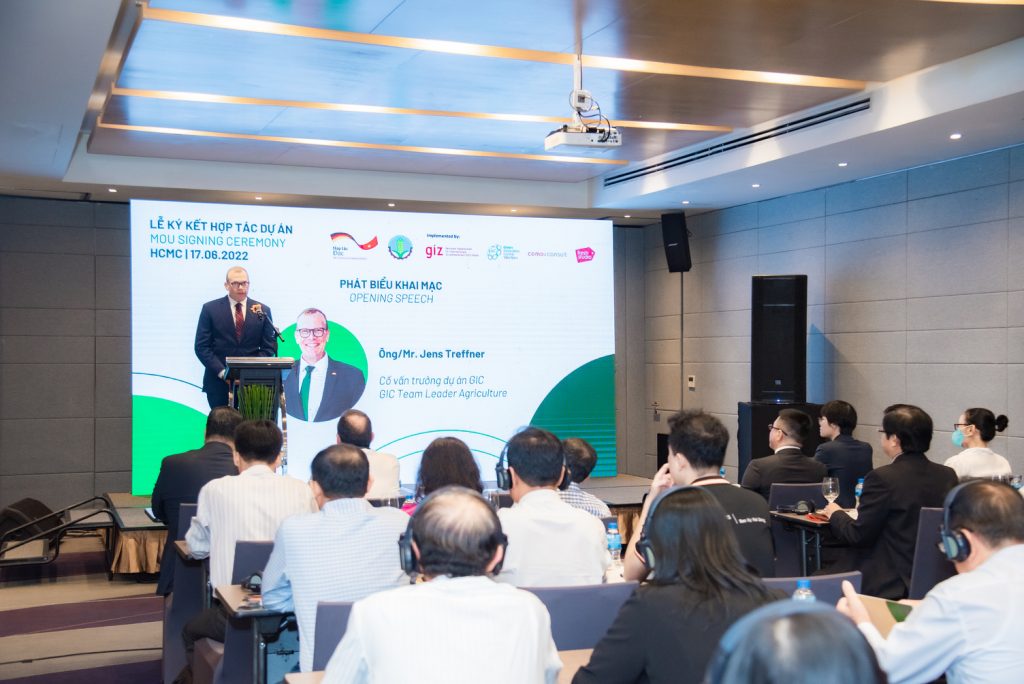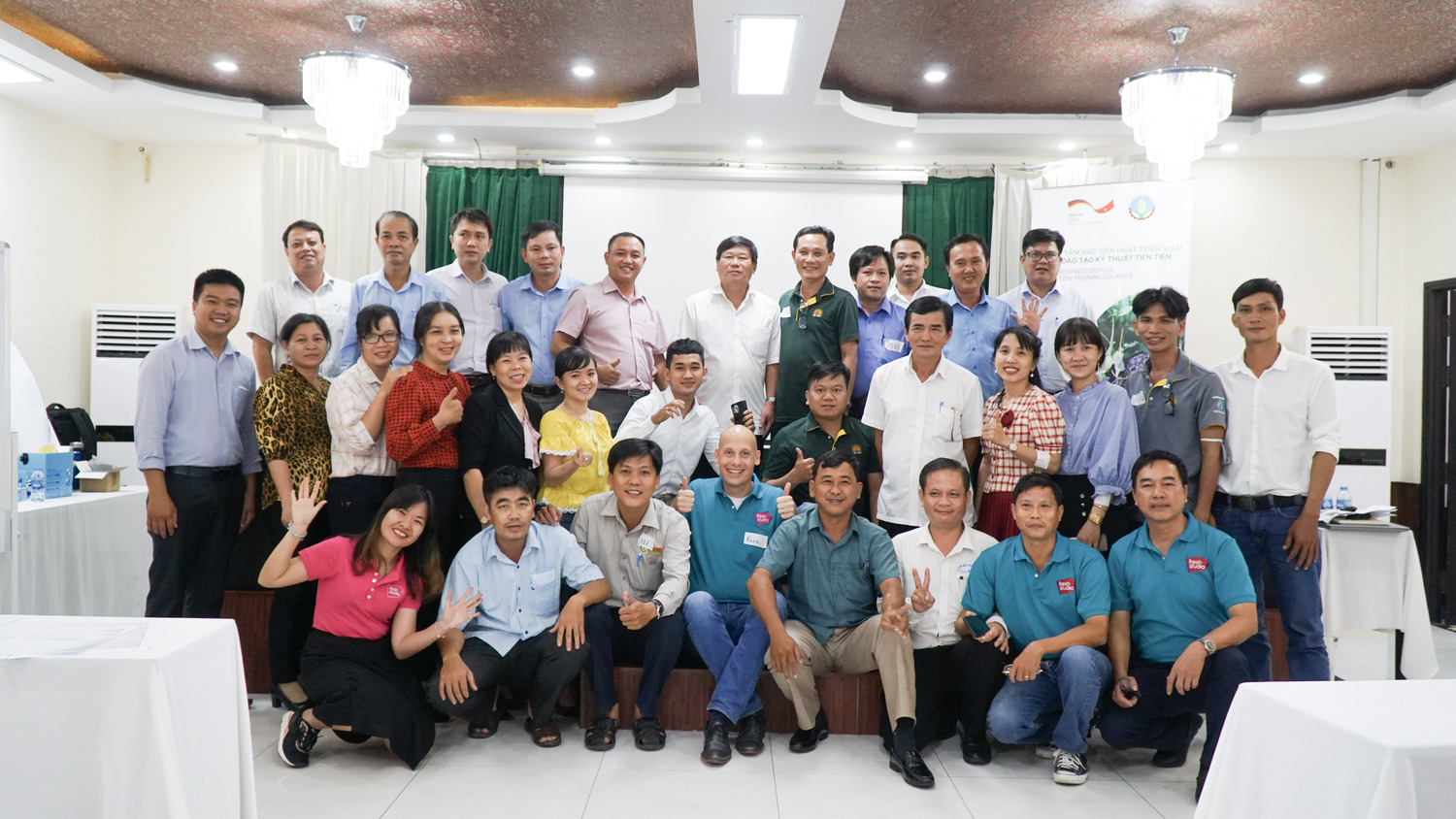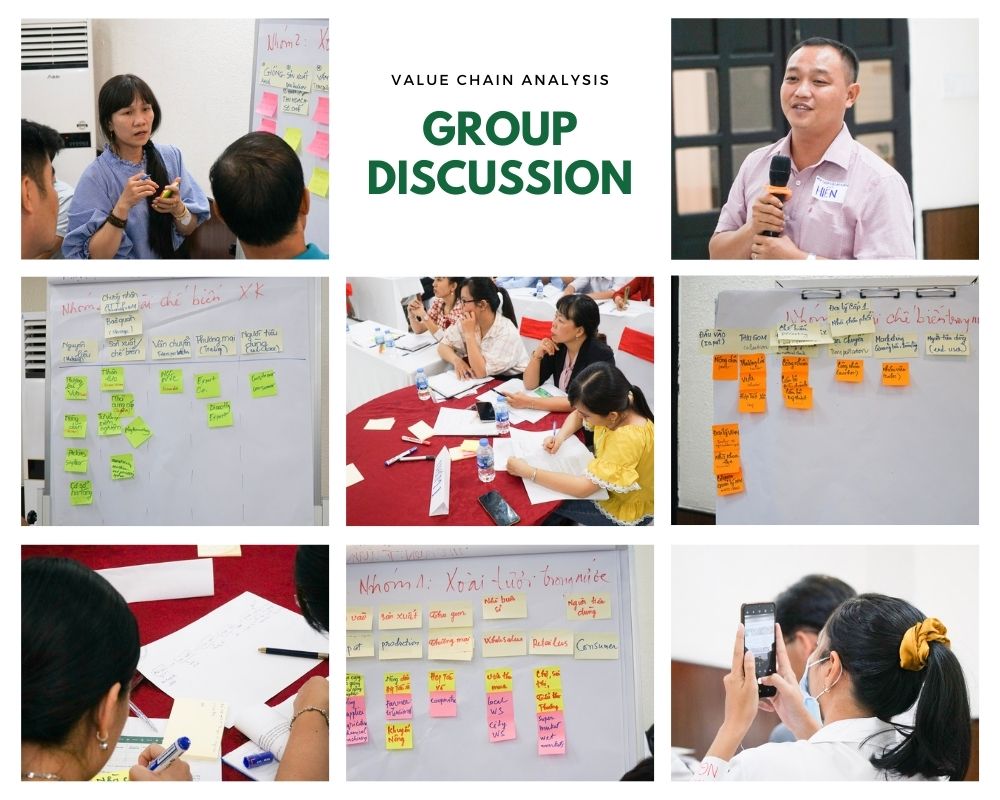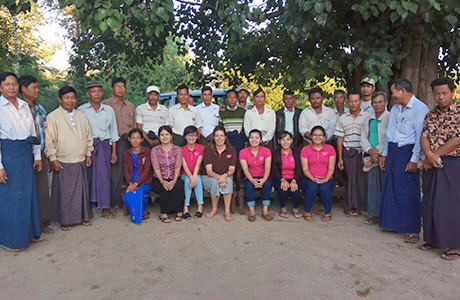As part of the Green Innovation Centers for Agriculture and Food Sector (GIC) project, an informative workshop was held on February 24, 2023 in Tien Giang. The workshop focused on ‘The potential applications to process the mangos in the Mekong Delta’. The objective of the workshop was to bring together companies, farmers, and cooperatives to share, listen, and learn from each other’s experiences. The experts from Covestro, Sofri, and Phap Viet Food led the workshop.
First, Covestro introduced the Greenhouse Solar Dryer. Ms. Phuong Mai Pham, the Inclusive Business Development Manager, explained that this dryer has the potential to be applied in the Mekong Delta due to the region’s high rate of solar radiation in comparison to Central and North Vietnam. She highlighted the benefits of using this method instead of electricity-run equipment, which included cost savings, and increased visual and nutritional qualities.
Next, Dr. Phong from Sofri explained the method of applying Solar Drying House technology for vegetables and fresh and processed food. He also shared information about the typical characteristics of vegetables and how to effectively optimize the quality of the product. Finally, Mr. Thanh Khe Dao from Phap Viet Food demonstrated the applied technology and equipment for processing mango products, including dried, pureed, and beverages made from mango flesh and skin.
In the afternoon, the cooperatives presented their projects, followed by a Q&A session. Participants actively asked questions about the presented projects and topics. At the end of the day, participants were excited to see the model of the Greenhouse Solar Dryer, which made the applied solution more powerful and believable for their future projects.
The workshop was a success, thanks to the participant companies who helped the cooperatives and farmers during the workshop. Participants have time until the next workshop to discuss whether to invest in the applications or not. Upcoming workshops have been planned: reporting the results and transferring the technology in March, and training on how to do business, e-commerce, and connect to the market for processed mango products in June.


